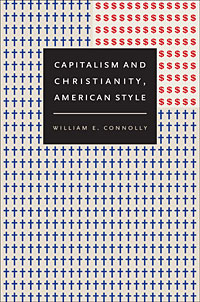While I would not want to deny the political importance of forms, I would add to this analysis the importance of the kinds of spirit or inner drive (desire) which may be astir in them. An essential part of the explanation for the enormity of 9/11 is that the terrorist network responsible for them was not animated by a drive to produce new configurations of value and meaning so much as by a reactionary desire to bring judgment upon forces of modernity which were perceived to be a threat to established (traditional religious) values. The animating spirit of terrorist networks is a spirit of ressentiment.
The attacks of September 11, 2001 on the World Trade Centers and Pentagon threw the debates over the definition of “religion” into a stir. Though religion was obviously a central factor in the events of 9/11, overly phenomenological and essentialist construals of religion were suddenly and starkly at a loss in making sense of how and why.
Political Theology 12.5 (2011) is a special issue entitled ‘Ten Years After 9/11’, in which twenty-two contributors from across the religious spectrum take stock of the events of September 11, 2001 and their aftermath. Perspectives are offered from theologians, specialists in the study of religion, historians, philosophers, ethicists, anthropologists and political scientists. A number of the contributors are active in the area of interreligious dialogue and interfaith relations. Some are grassroots activists.
So now these chopped-apart verses stand in our textual memory as a testament to a moment when our movement was frightened by the logical conclusions of its own radical claims.
The American theologian H. Richard Niebuhr began his prescient, perhaps timeless, essay on the Sino-Japanese War – “It may be that the greatest moral problems of the individual or of a society arise when there is nothing to be done.” In the face of a colonial conflict in Asia, and calls for U.S. intervention, Niebuhr urged an active inactivity.
As we in the West celebrate their accomplishments and support their efforts, it is important to temper our expectations and widen our conception of responsible government. The heritage of most Christian reflection on politics has been relatively pragmatic concerning acceptable and appropriate social arrangements.
By Andy Flannagan
Our attitude to the planet and its structures, as economics and ecology mix inextricably, are formed by whether our mindset is one of moving on to the next place, or one of renovation. Our God is a God intent on renovation. He has a plan for this place and it is good. This place IS the next place. It will be transformed. And incredibly we are called to be part of demonstrating what this next place will be like right now, which surely involves change within and through political structures.
This text is one of the most fruitful lessons for thinking about the political theology of scripture in the whole three-year cycle. It is also one of the most humorous texts in scripture, as the powerless subvert the powerful.
By Andrew Marin
Historians note that on 28 June, 1969 the modern era of the battle over gay rights unofficially began. It was in the early hours of that morning in Greenwich Village in New York City at an underground gay club called Stonewall Inn that a group of LGBT patrons began fighting back against the NYPD, who regularly showed up to receive bribes and shake-down those in the club under the threats of a very public, and irrevocably damaging, “outing.”
The wisdom of the world pretends completeness, offers an answer for every query, a reason for every action. Paradox is anathema: dark and demented. And so the interests of the wealthy and the powerful are secured, the false comfort of worldly wisdom prerequisite for accumulation and domination. That which threatens the supremacy of this wisdom – and so threatens the interests of the wealthy and the powerful – can only be “vile, cruel, and destructive.”
